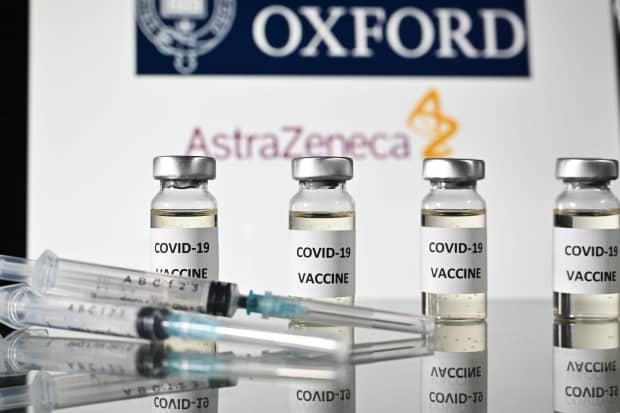
justin tallis/Agence France-Presse/Getty Images
AstraZeneca and the University of Oxford said on Monday that their COVID-19 vaccine candidate was found to be as much as 90% effective in preventing infections, according to data from a late-stage clinical trial in the U.K. and Brazil.
Interim analysis from the Phase 3 vaccine trial found that the experimental shot is 90% effective when administered as a half dose and then a full dose one month later. Effectiveness falls to 62% when two full doses are administered one month apart.
The combined analysis from both dosing regimens showed an average efficacy of 70.4%, said the University of Oxford and drugmaker AstraZeneca
AZN,
-1.44%
“These findings show that we have an effective vaccine that will save many lives,” said Andrew Pollard, chief investigator of the Oxford Vaccine Trial, in a statement.
“Excitingly, we’ve found that one of our dosing regimens may be around 90% effective and if this dosing regime is used, more people could be vaccinated with planned vaccine supply,” Pollard added.
Prof. Sarah Gilbert, professor of vaccinology at the University of Oxford, said: “The announcement today takes us another step closer to the time when we can use vaccines to bring an end to the devastation caused by SARS-CoV-2.”
Read: AstraZeneca’s COVID-19 vaccine shows ‘encouraging’ immune response in older adults
AstraZeneca said there were no serious safety events related to the vaccine and it was well tolerated across both dosing regimens. Late-stage clinical trials of the vaccine are continuing in the U.S.
Shares in AstraZeneca were down 1.7% in early London trading on Monday.
AstraZeneca’s news comes days after drugmaker Pfizer
PFE,
-0.84%
and its German partner BioNTech
BNTX,
+1.43%
requested emergency-use authorization of their COVID-19 vaccine candidate, shown to be 95% effective, in the U.S. on Friday.
Read: Pfizer and partner BioNTech to seek emergency-use authorization for COVID-19 vaccine Friday
Moderna
MRNA,
+2.59%
has said that its vaccine candidate is 94.5% effective and that the biotech company is also expected to apply for emergency authorization shortly.
AstraZeneca’s vaccine candidate can be stored at normal refrigeration temperatures, not needing the supercool storage the Pfizer vaccine requires.
“It is hugely significant from a logistics point of view that storage can be achieved at a normal refrigeration temperature of around -3 degrees. This makes it much more scalable and as such easier to deliver on a global scale,” said Michael Hewson, chief market analyst at CMC Markets U.K.
Analysts at UBS said AstraZeneca will now try and take its pooled data to regulators that have the ability to grant conditional or early approval.
“Given FDA [Food and Drug Administration] guidelines, the U.S. is unlikely to be one of them and the vaccine doesn’t seem to be as effective as the mRNA ones. Storage requirements and manufacturing capacity are a plus though,” the UBS analysts wrote in a note to clients on Monday.
U.K. health secretary Matt Hancock said it was “fantastic news” that data on Monday showed that a COVID-19 vaccine developed by AstraZeneca with the University of Oxford could be up to 90% effective.
“We’ve got 100 million doses on order and should all that go well, the bulk of the rollout will be in the new year.”
Study results
More than 20,000 volunteers were involved, half in the U.K., the rest in Brazil. The interim analysis was based on 131 infections among volunteers who received the vaccine and those in a control group who were given a meningitis shot.
AstraZeneca and the University of Oxford said they have found no serious COVID-19 cases among any of the 20,000 people who received the shot in the clinical trials in the U.K. and Brazil.
AstraZeneca said it is making “rapid progress” in manufacturing, with a capacity of up to 3 billion doses of the vaccine in 2021 on a rolling basis, pending regulatory approval.
In parallel, Oxford is submitting the full analysis of the Phase 3 interim data for independent scientific peer review and publication.







































